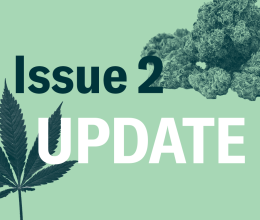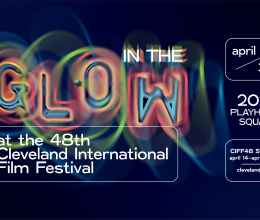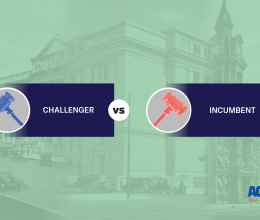Since the end of May, protests have rocked the nation after the murder of George Floyd at the hands of Minneapolis police, resulting in incredible responses on many levels. They have included Confederate statues coming down, Minneapolis agreeing to dismantle their police force, and companies across many different areas committing to equity and racial justice. Organizing and conversations have revolved around defunding/abolishing the police, divesting, and holding police officers accountable for their unjustified use of force, especially against Black people, Indigenous people, and people of color. Included in these calls to action is the fight to pull police officers from schools. In early July, the Columbus Division of Police “abolished” school resource officers (SROs) following the end of its contract with Columbus City Schools. Alternatively, and unfortunately, Northeast Ohio school officials reaffirmed SROs despite calls to abolish them, and the Cincinnati Public Schools Board is discussing the topic after parents, teachers, and students voiced their concerns over having police in their school system. Other cities also have begun to discuss this topic – and for good reason: police do not belong in schools. Upon hearing this, the knee-jerk reaction is likely confusion and fear. Why would someone want to pull police from our schools – especially when school shootings were on the rise before the COVID-19 pandemic? Who would break-up physical altercations? Who else could keep the school safe – after all, doesn’t a police presence in schools make them safer? In short, the answers revolve around one tremendous fact: officers do not make schools safer. In fact, they often cause harm and perpetuate the school-to-prison pipeline. And here’s why.
-
- What is the school-to-prison-pipeline?
The school-to-prison pipeline is a disturbing national trend wherein children are funneled out of public schools and into the juvenile and criminal justice systems. A large number of these children have learning disabilities or come from impoverished communities and are frequently victims of abuse or neglect. Often, these children could greatly benefit from additional educational and counseling services – however, due to the school-to-prison pipeline, they are instead punished, isolated from their peers, and shoved out of school into incarceration
-
- Why are police in schools?
According to a report released by the ACLU in 2017, for over fifty years, there has been an increased presence of officers in schools – with a particular focus on schools where student populations consist of poor Black and Latino communities. Along with mass incarceration on the rise, there has been an increased panic created by the media, law enforcement, and politicians over the supposed increase of youth crime. This frenzy has been utilized to justify the targeted and punitive policing of low-income Black and Latino youth. After the Columbine massacres, there was an extreme rise of the expansion of a permanent police presence in schools – and this was sold to the masses by creating the ideal of a “school resource officer.”
-
- What is the intended purpose of school resource officers?
Conferring to the same report, the role of police in schools differs from state to state, district to district, and even school to school. At the national level, the federal COPS office and professional organizations like NASRO have come to describe the job of the school resource officer as a triad of law enforcement, counseling, and teaching. Whether or not school police in a particular district or school espouse elements of this triad, school police are always, first and foremost, engaged in law enforcement. In other words, SROs end up serving as law enforcement, informal counselors, teachers, emergency responders, and school disciplinarians – despite not having the proper training or credentials to serve as professionals in some of these roles.
-
- What are the negative effects of SROs in schools?
There are many different negative impacts upon students in each of these instances, but it is imperative to focus on one thing in particular: violence perpetuated against BIPOC – and especially Black – students, mirrors that of the police brutality we see on the streets and the disproportionate mitigation of punishment and discipline we see in the courts. Though the examples are many, some of the most recent examples include an SRO body-slamming a middle-schooler twice and a 15-year-old student being incarcerated for not doing her homework during the global pandemic. The latter is still imprisoned and has been since the end of May. Furthermore, the prioritization of hiring and implementing SROs in schools has led to the lack of vital resources – so much in fact that:
-
- 7 million students are in schools with police but no counselors
- 3 million students are in schools with police but no nurses
- 6 million students are in schools with police but no psychologists
- 10 million students are in schools with police but no social workers
- And 14 million students are in schools with police but no counselors, nurses, psychologists, OR social workers.
This means there are almost 35 million students who are found in a situation in which policing them is more important than providing them with an essential resource.
-
- What does this mean?
As evidenced by the information above, Black and Brown students are criminalized from a tender age and funneled into the criminal justice system to fuel the mass incarceration crisis. And the question that we have to ask ourselves is this: does it have to be this way? The answer is a resounding NO. It does not have to be this way. Instead of being punished at such a young age, our children deserve better. Instead of calling in SROs to deal with the so-called “problem” of troublesome children, why not invest in professionals – such as psychologists, counselors, and social workers – who can find the root cause of the behaviors these students exhibit and what traumas that may be fueling them. Why are we punishing the students who need us the most? Why are we punishing kids for being kids or for lashing out as they figure out how to deal with their traumas? Our children deserve better. The school-to-prison pipeline should’ve never existed in the first place, yet here we are, standing in a time long past in which we’ve had plenty of time to take action in order to provide better for them. As boards of education, administrators, teachers, parents, and students prepare for the unknown future of the 2020-2021 school year in light of the pandemic, one thing should be obvious to all: we must get police out of schools.









